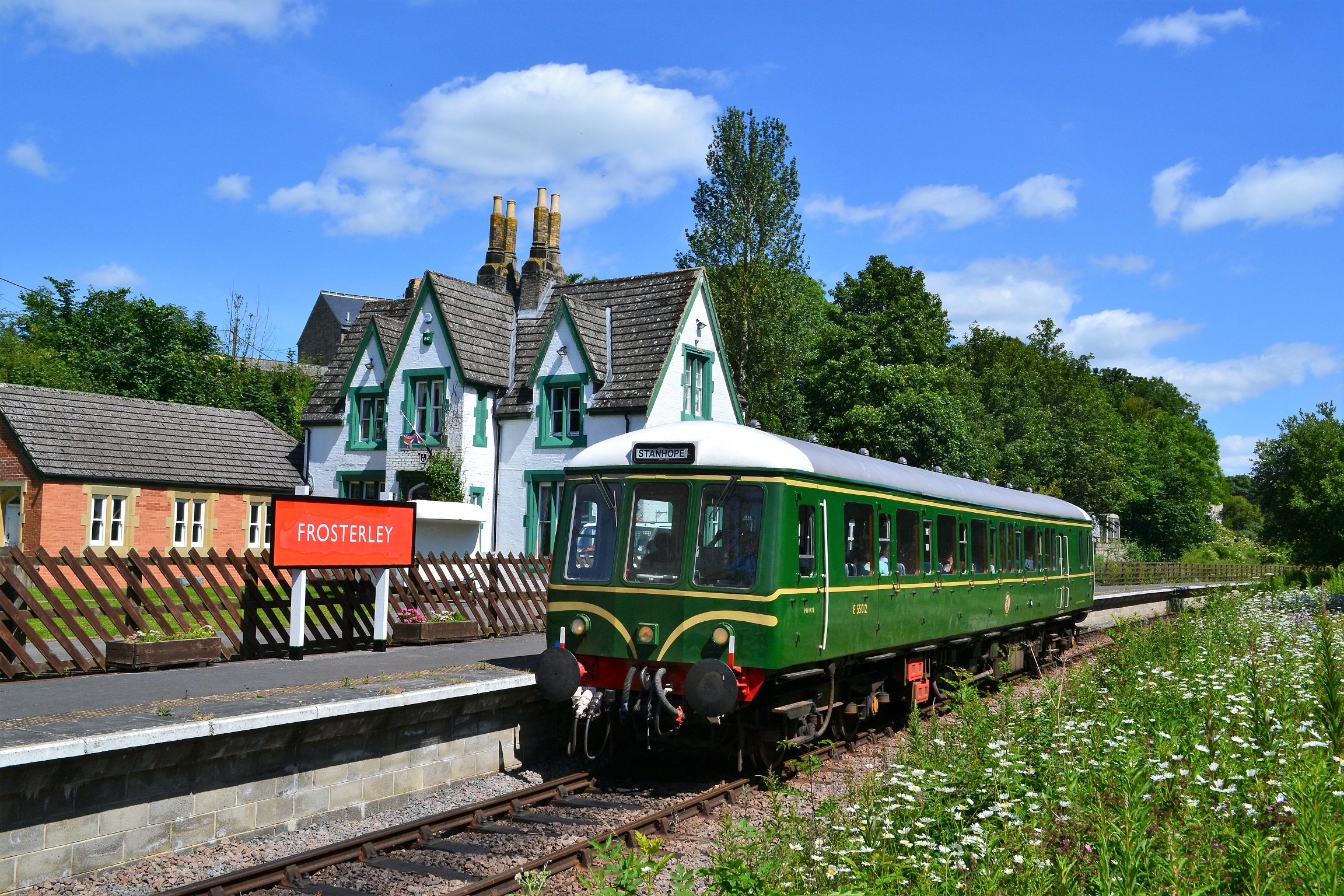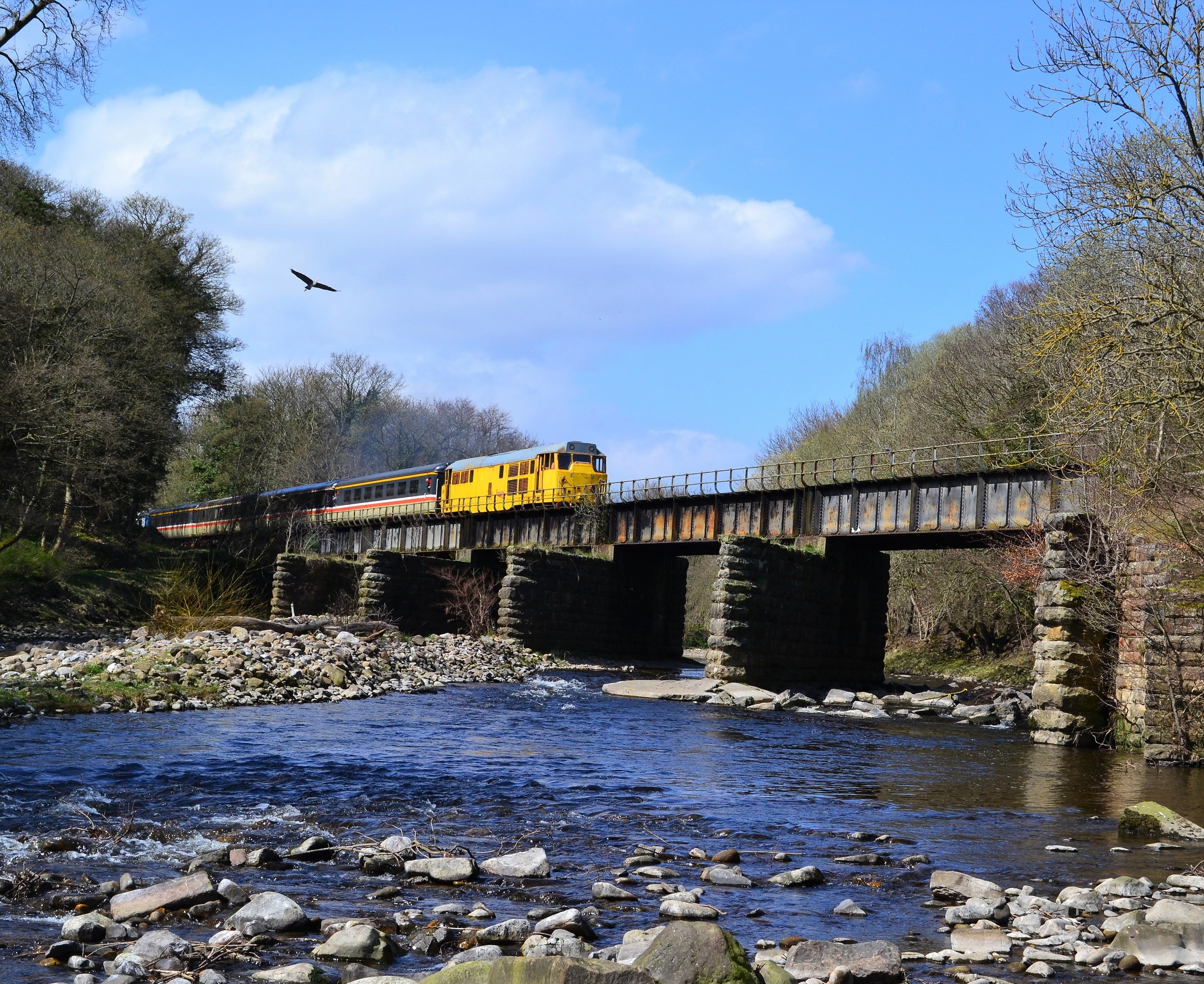New jobs, improved transport links and a welcome boost to County Durham’s visitor economy are a step closer after councillors agreed to invest £2.1 million into a heritage railway line.
Today (Wednesday), Durham County Council’s Cabinet voted to support plans to transform Weardale Railway into a major visitor attraction, as part of the local authority’s commitment to regenerating the economy amid the coronavirus pandemic. By providing this vital match-funding, the council will enable Weardale Railway Limited, a newly established subsidiary of The Auckland Project, to carry out essential infrastructure works needed to reopen and expand the line.
Weardale Railway Limited aims to build on the good work already undertaken on the railway over the last 25 years to create employment opportunities for local people and attract tens of thousands of additional visitors each year. And with the line extending from Upper Weardale to Bishop Auckland, Weardale Railway can enhance and extend the culture and heritage on offer in the area. This includes Binchester Roman Fort, Bishop Auckland Town Hall, Locomotion, Kynren, the recently restored Auckland Castle, and The Auckland Project’s other attractions such as the Mining Art Gallery and Spanish Art Gallery.
The heritage service would also increase the reach of the Bishop Auckland Line, providing residents with a link to the East Coast Main Line, as well as attracting regional and national visitors to the area. The additional footfall would boost the taking of shops and hospitality businesses in Weardale, Bishop Auckland and beyond, as visitors go on to explore other parts of the county.
The venture would also create employment and training opportunities for residents, including apprenticeships for young people.
Cllr Carl Marshall, Durham County Council’s Cabinet member for economic regeneration, said: “Weardale Railway is an important and much-loved heritage asset, but it also has the potential to be a valuable economic asset too.
“Tourism has been hit hard by the pandemic, but it now stands to play a crucial role in the county’s economic recovery. We are doing as much as we can to assist the sector now and safeguard the thousands of jobs it supports. However, it is also important to look ahead and support ventures that will bring long-term benefits to our communities.
“This is a strategy we are applying across the county and in other sectors too. It is why we are working hard to ensure the development of major employment sites and transport infrastructure improvements remain on track. Investing in Weardale Railway is part of our commitment to County Durham’s future.”
Liz Fisher, curatorial and engagement director at The Auckland Project, said: “Saving such a well-loved attraction has been a real privilege, and we can’t wait to welcome everyone back on board next year. We’re looking forward to developing a range of services over the coming months for local people and visitors from further afield to enjoy. Like Auckland Castle, Weardale Railway has an incredible heritage, and we want to make sure it has a bright future too.”
Dating back to the 1847, Weardale Railway stretches a total of 19 miles from Bishop Auckland to Eastgate and has open stations at Witton-le-Wear, Wolsingham, Frosterley and Stanhope. In recent years, much of the work to preserve the railway has been made possible thanks to an army of dedicated volunteers.
Steve Raine, from Old Quarrington, near Bowburn, has been fascinated with railways since he was a child and joined the Weardale Railway Trust when it was set up in the mid-1990s. He is now a director of the charity and Weardale Railway Limited, both of which are voluntary positions.
Steve said: “We are all very much in favour of the plans to develop Weardale Railway and welcome the support of The Auckland Project and Durham County Council.
“Weardale is a relatively undiscovered part of the country – a real hidden gem – and I think that is part of what makes the heritage line so special. Linking Weardale Railway to The Auckland Project’s other activities in the area is an opportunity to raise its profile and encourage more people to visit the area.”











